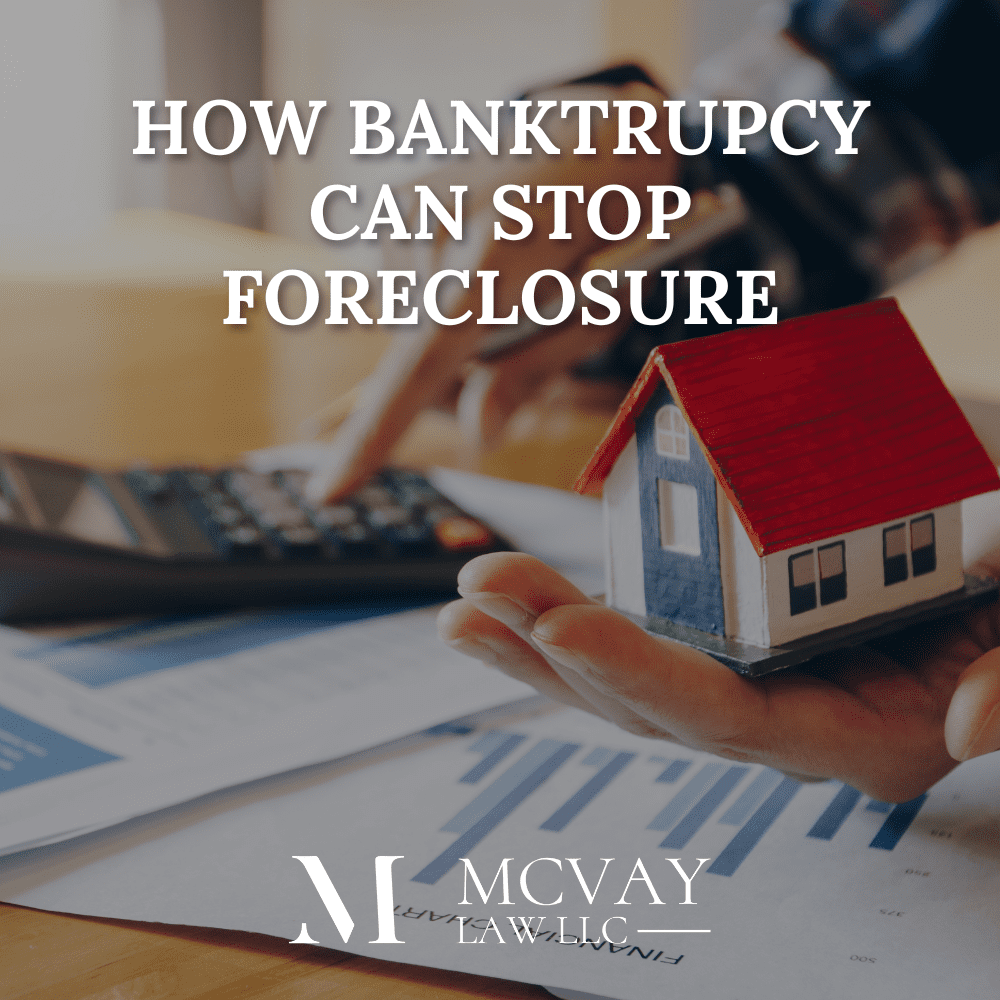
If you fall behind on your mortgage for more than three months, lenders and mortgage companies will most likely begin the foreclosure process. This process takes time. Once you fall behind on your mortgage and know you’ll be unable to make the next payment and the next, you need to consider alternatives to foreclosure. Alternatives can include a loan of forbearance, short sale, or deed in lieu of foreclosure. If these alternatives fail, bankruptcy may help stave off a foreclosure on your property.
Once You File For Bankruptcy
Once you file either chapter 13 or chapter 7 bankruptcy, the court will automatically issue an Order for Relief. This will direct your creditors to immediately cease collection attempts. This will postpone any foreclosure sale that has been scheduled for your property until the bankruptcy is finalized.
However, lenders can file a motion to lift the stay. If this is granted, the foreclosure process may continue, but usually this will postpone the sell for at least two months. If the foreclosure notice has already been filed before you declare bankruptcy, there is typically nothing that can be done. Most states have laws that require lenders to notify homeowners that the home will be sold months in advance of the actual sell date. If you go into bankruptcy after this notification and the sell date would fall during your bankruptcy proceedings, lenders may file to lift the stay of foreclosure imposed by the bankruptcy.
How Chapter 13 Bankruptcy Can Help You
Chapter 13 bankruptcy allows you to set up a repayment plan to pay off your debts.While you may set the length of time for repayment, you must have sufficient income to pay both past due debts and current mortgage payments at the same time. Chapter 13 can also recategorize second and third mortgages. These are often turned into unsecure debt which take least priority in the repayment plan and usually does not have to be paid off. This recategorizing process is possible if your first mortgage is secured by the entire value of your home, since this means that there is no remaining equity in your home to secure the second and third mortgages.
How Chapter 7 Bankruptcy Can Help You
Chapter 7 Bankruptcy can cancel all debt secured by your home. This includes mortgages and equity loans and, furthermore, forgives homeowners for tax liability for losses the mortgage or home-improvement lender incurs as a result of the homeowner’s default.
Caution About Chapter 7 Bankruptcy
Chapter 7 will not keep you from losing your home. All Chapter 7 Bankruptcy does is forgive your debts. When entering into a mortgage, you use the home you’re buying as collateral in case you default on the payment. Chapter 13 pauses action on that lien, while you catch up on your payments and allows you to save your home. Chapter 7 forgives your debt, but it will not lift the lien and the foreclosure on your home. If you are having trouble paying your mortgage due to other debt, Chapter 7 may be able to forgive those debts and allow you more of your income to spend on paying the mortgage.
Remember that because of the complexities of mortgages, bankruptcies, and state laws, it’s always in your best interest to see the consultation of a bankruptcy attorney such as McVay Law LLC.

